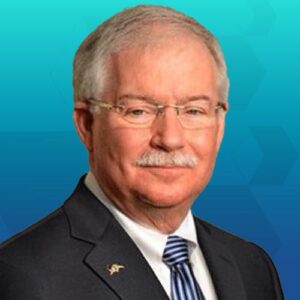Peter Drucker (1909-2005) was one of the most well-known and influential thinkers on business management. The mention of his name still perks the ears of executives at small companies and global corporations alike. Credited as “the father of management thinking,” his teachings and written works (he authored 39 books) are still advocated by leaders worldwide.
As an educator, one of Drucker’s pupils in the late 1970s was none other than Mike Marks — the Co-Founder and Managing Partner of Indian River Consulting Group and frequent speaker at various distribution industry events, which recently included co-emcee of MDM’s 2022 SHIFT | The Future of Distribution conference in September.

Making his way through the sales ranks, Marks’ boss at the time was able to get him into the Claremont Graduate School (Claremont, California), which is now Claremont Graduate University and home to the Drucker School of Management. Drucker taught at the business school for more than 30 years.
In their first meeting there, Marks told Drucker that he was working for a distributor at the time, which he said Drucker found particularly interesting.
“He said, ‘Distribution is the dark continent of the American economy. It touches everything. Nobody even knows it’s there. It’s absolutely unique to the United States and other countries are trying to copy it,’” Marks recounted in an MDM QuickTake conversation with Tom Gale in early January.
Drucker is famous for his core teachings of first-principles thinking. Marks noted how theoretical physicist Robert Oppenheimer — credited as the “father of the atomic bomb” — and Tesla/SpaceX/Twitter CEO Elon Musk are famous for using a first-principles approach to guide their decision-making. Tech titans Jeff Bezos and the late Steve Jobs are also renowned first-principles thinkers.
Definitions of first-principles thinking vary somewhat, but essentially it involves breaking something down into its basic elements to get to the core truth of what is known to be true. Doing so removes assumptions and determines what is absolutely certain. The philosophy is traced back to Aristotle’s writings in approximately 350 B.C.
Past MDM QuickTakes, blogs and other MDM Podcasts have focused on a similar topic of a “North Star” and how critical it is for a distributor to have a fixed, guiding principle to help them navigate the challenges that come with digital transformation, talent acquisition and retention, technology adoption and other movements.
While ancient, the lesson remains critical today.
“I think a lot of the challenges distributors have today is that they get so wrapped up doing what they’re doing, they need to step back and look at what some of these first principles are,” Marks said.
So what are the first principles for distributors? What are the components that underlie everything else? According to Marks, Drucker emphasized several that apply directly to distribution:
Create a Customer
Marks said Drucker explained that “the purpose of a distribution business in society is to create a customer. That’s how you add value.”
Drucker added if creating a customer is the business purpose, profit is then a test of management decision-making, because the business has to produce a profit to continue maintaining the customer.
“Everything starts with the customer, and then you work backward,” Marks recounted. “And when you see a company that’s not making money, chances are they haven’t done things right by their customers”
Marketing and Innovation
So, creating a customer is a distributor’s purpose. To serve that purpose, Drucker taught Marks that a company has only two functions: marketing and innovation.
Marks said it was a hard concept to grasp as a young guy in graduate school coming up through sales. “I’m going like, ‘This is heresy,’” he said. “The marketing people are empty suits and dresses. The salespeople make it happen.” But Drucker was able to push his teaching through with the point that marketing says you have understood the needs of the customer so well that selling becomes unnecessary once the customer is aware that you have a solution to their problem.
The innovation side, Drucker taught, is in finding new and different ways to deploy your resources to create value for customers.
“So his point in this whole thing is that unless your customer is the government or a nonprofit, you want to really focus on the revenue stream, which is about how you add value to customers,” Marks said. “And at a properly-managed company, the cost stream becomes self-regulated.”
Marks went deeper on those points than what’s recapped above here, and he and Gale went on to discuss the nuances of marketing, customer behavior segmentation, the concept of crawl-walk-run, and the importance of always asking questions. Marks also had interesting insights on what Drucker’s management advice would be for today’s distributor in the age of technology tools.
Marks often cites Drucker’s teachings in his speaking presentations and distributor advisement conversations.
Listen to the full QuickTake Podcast via the audio player above, and check out our full library of podcasts here.
Related Posts
-
Atlanta-based Heritage Distribution Holdings is a group of HVACR distributors serving the U.S. southeast and…
-
There's an old saying that GPS has gotten more people into trouble than out of…
-
We all know the distribution sector is highly fragmented, but to what extent? A chat…






